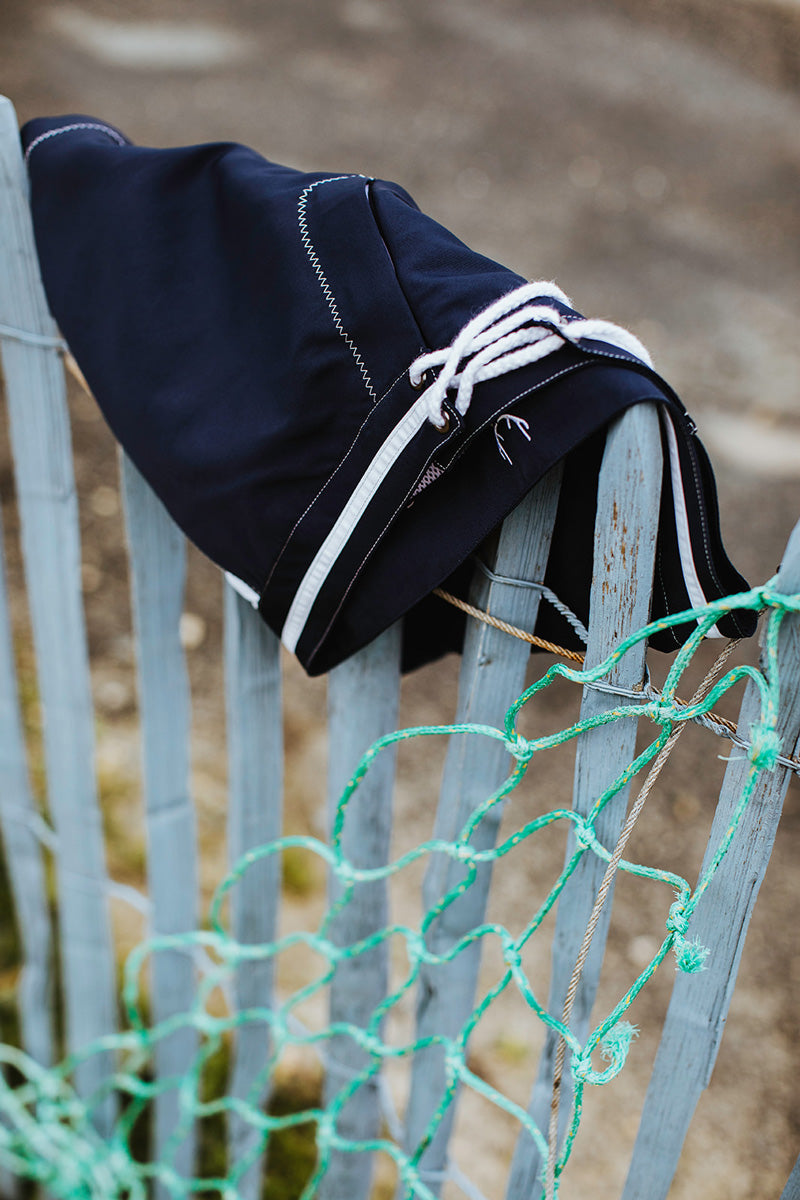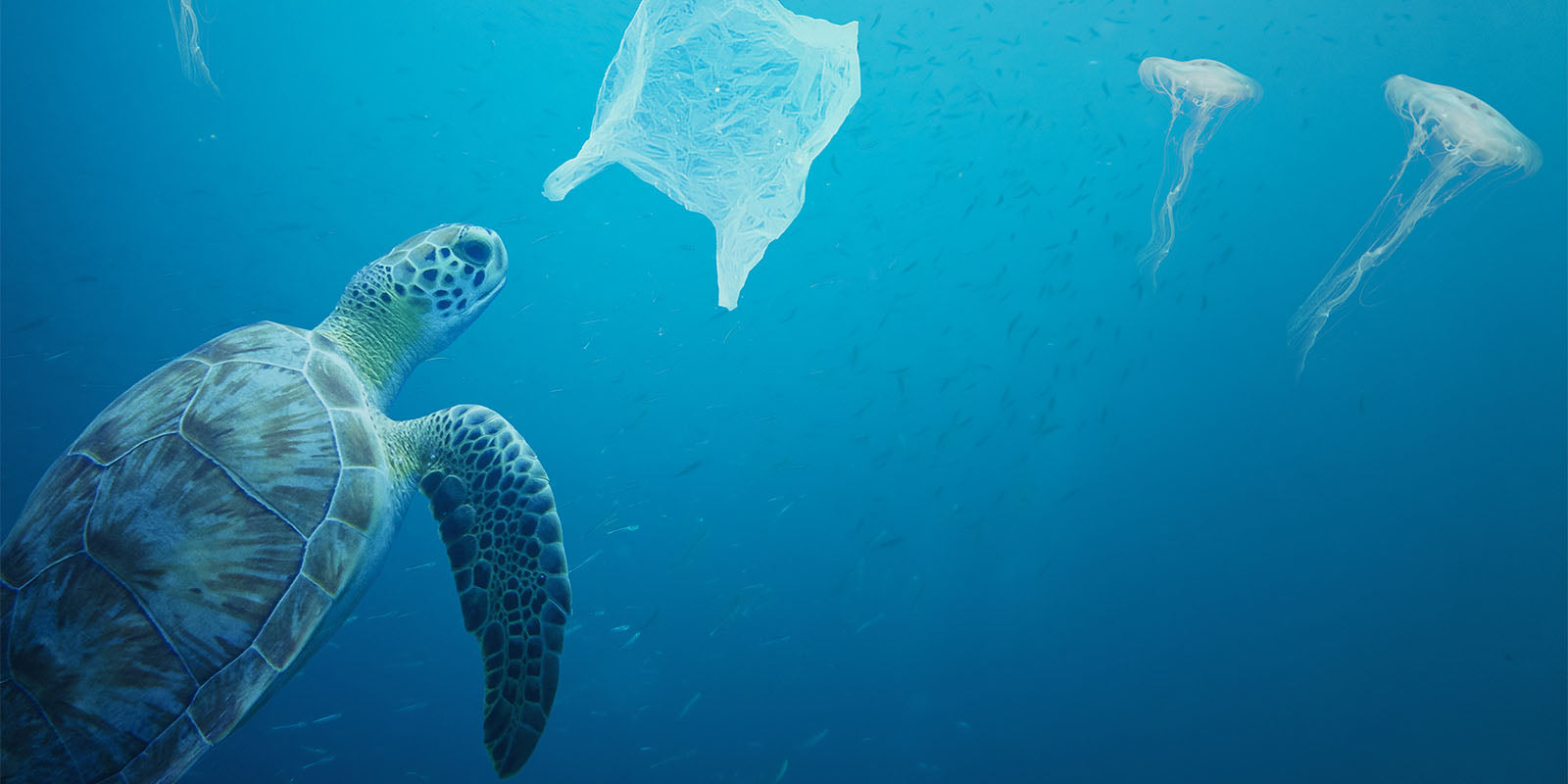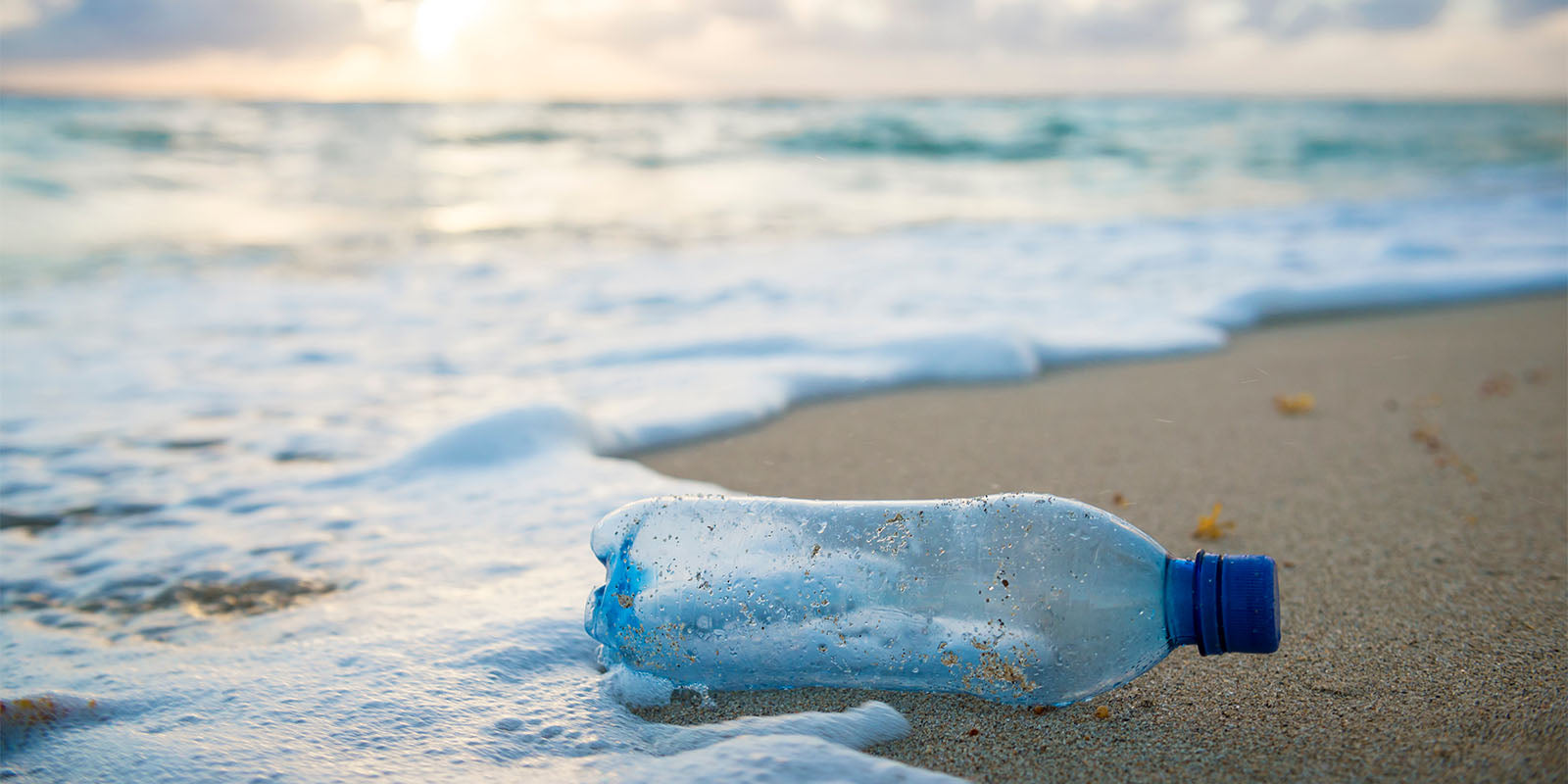At Bluebuck, we strongly support attempts to tackle climate change and the post-consumer waste that our way of life all too often creates.
Our swim shorts and entire Sport underwear collection are made with recycled marine plastic, thanks to our partnership with the SEAQUAL INITIATIVE. Here's more about what Seaqual does, why it's needed and how we fit into this amazing global movement.
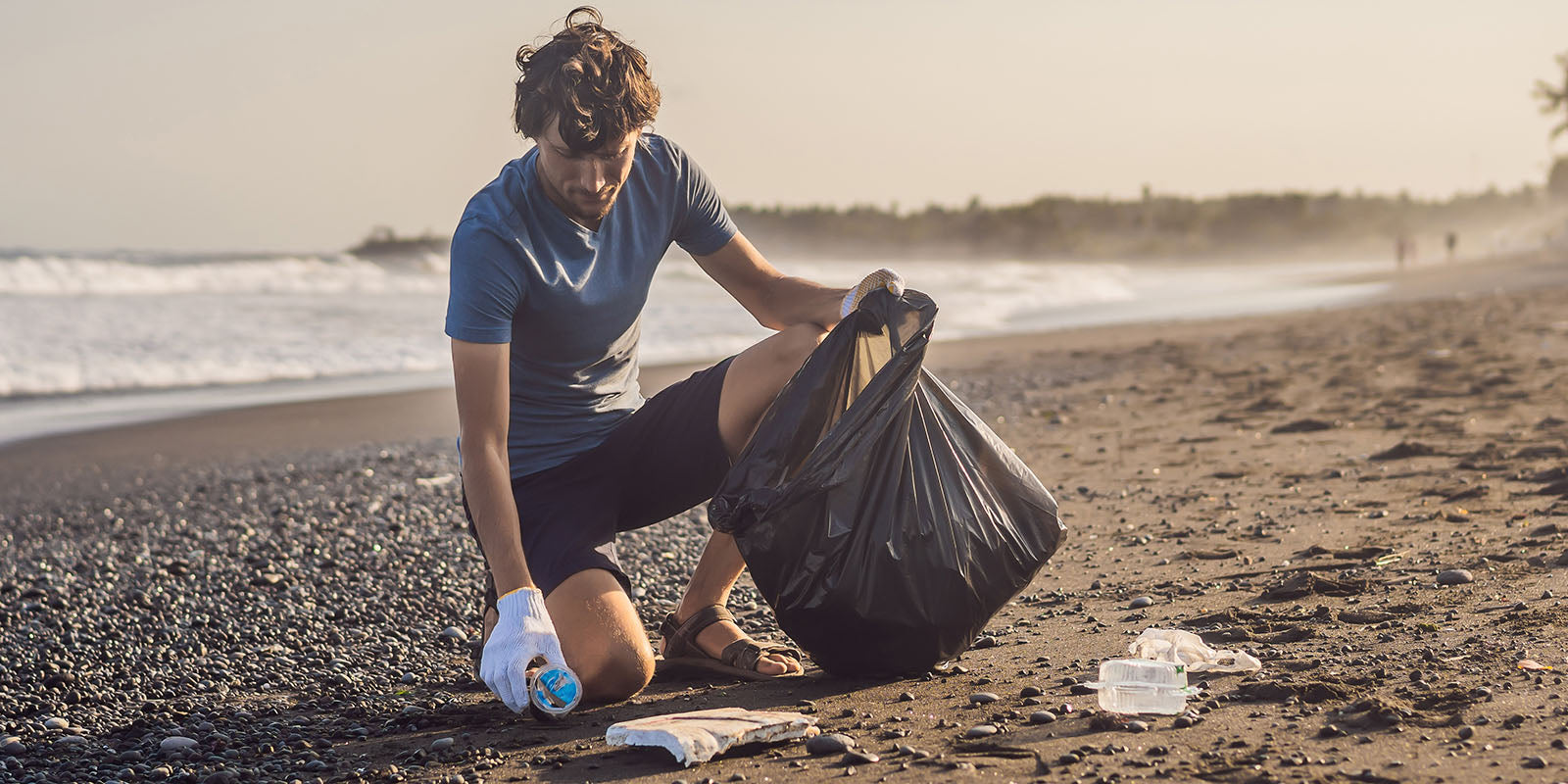
The problem of plastic pollution in the oceans
Every year, 12 million tons of plastic ends up in our oceans.
Most of it comes from land, either thrown in directly or blown by the wind into rivers from where it flows on, and in, to the oceans themselves.
The majority of this plastic is post-consumer waste: food containers; packaging and plastic bags. A smaller amount comes from fishing (nets either dropped or left in the sea) and shipping (lost cargo).
The real problems begin when all that plastic settles. Some of it ends up on beaches and coastal areas. Some floats on the ocean surfaces. But the vast majority ends of up on the sea floor, invisible to us and very hard to retrieve.
Marine life seriously suffers as a result. Seabirds, fish, turtles and whales all ingest plastic debris, thinking it's food. But that plastic can end up killing them instead.
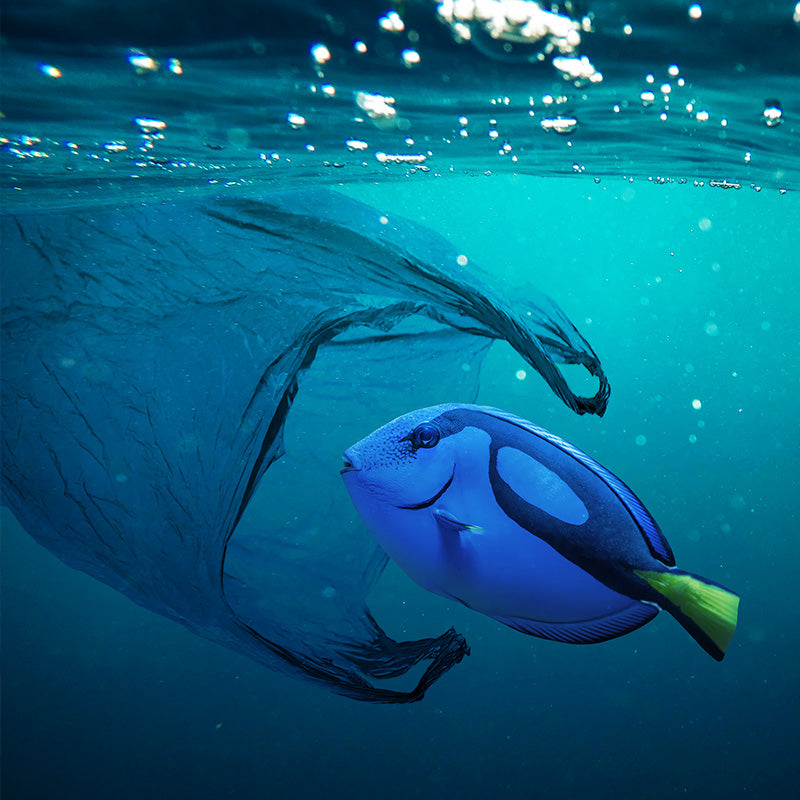
Seaqual – making ocean plastic fantastic
But there is an organisation dedicated to tackling this problem, and it's called the SEAQUAL INITIATIVE.
They collaborate with recycling industries to turn marine litter into products, including clothing, to give all that plastic a new life.
SEAQUAL INITIATIVE is, in fact, a community of people, organisations and businesses.
It started in Spain, where hundreds of fishermen were the first to sign up.
When they found or caught debris in their nets, they brought the plastic waste back to shore. It was then sent on to participating recycling facilities.
That local movement soon worked its way across Europe and is now global, with ocean clean-ups involving small groups of volunteers, charities or associations all the way up to large international programmes and NGOs specialising in ocean protection.
This global network helps harvest the plastic raw materials, as well as glass, certain metals etc, which are then sorted, washed and, in the case of the marine plastic, transformed into yarns at dedicated facilities.
Thanks to the SEAQUAL INITIATIVE over 200 tons of marine litter has been recycled and re-used – a perfect example of a circular economy approach to tackling post-consumer waste.
How we use Seaqual fibres to create our products
Seaqual's Spanish recycling facility takes plastic waste from various regions and turns it into new high-grade yarns.
The fibres are then woven and the fabrics dyed, before being sent to the Portuguese factory that produces our swim shorts.
Everything - even the mesh lining of the shorts - is made from these 100% recycled Seaqual polyester yarns.
We also use Seaqual yarns in another factory that makes the jerseys for our Sport collection. There, the fibres are knitted together with a yarn of organic cotton.
Once the jersey has been created, it is dyed and then sent on to the Portuguese factory which cuts it to make our Sport briefs and trunks.
